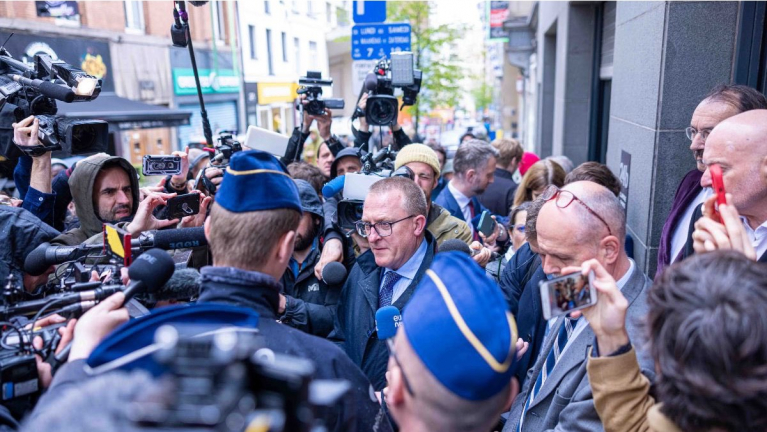- Free Speech vs Hate Speech: The EU’s censorship agenda
- 18:00 - 19:30, Wednesday 15 May
- Stanhope Hotel Brussels
REGISTER HERE
The recent attempt by the Brussels political elite to cancel the National Conservative Conference was not a one-off attack on free speech in Europe. It fits the pattern of decades of policies emanating from the EU which aim to control the political narrative, along with numerous examples in Brussels itself of events being cancelled.
The #April16 attempt to cancel NatCon exposed the reality that the Brussels bubble wants to determine what the 448 million people who live in EU countries can say, hear or think. From clampdowns on “disinformation” or attempts to ban so-called “hate speech”, elites now even speak in Orwellian terms of freedom from speech (not freedom of speech). In response, MCC Brussels launched the Brussels Free Speech Declaration – a campaign to win recognition of the foundational importance of freedom of speech.
But as is especially clear in the EU’s digital agenda, there is a concerted effort to give EU elites the power to determine what is acceptable speech, and to remove anything they deem to be politically dangerous. Hiding in plain sight is the attempt to set up an unprecedented system of political interference in what can and cannot be said online.
The attempted NatCon cancellation and the EU’s anti-free speech agenda both speak to a worrying trend in European politics: instead of trying to convince their political opponents, EU elites increasingly try and silence them. Lurking in the background is the fear that from Net Zero to the culture war, from the economy to foreign policy, EU elites are losing the argument.
Who should control what can or cannot be said, heard or thought in Europe? What is the best weapon against false or hateful speech? Punitive restrictions, or more speech? What do European citizens lose when elites gain the power to determine the boundaries of acceptable speech? Why is free speech so vital to democracy?
Our new report from MCC Brussels' technology expert Norman Lewis, ‘Hate speech versus Free Speech: The Future of European Democracy’, aims to provide a counterpoint to the Brussels hate speech narrative. It explores how the EU has progressively sought to control more and more of what can be said. In the face of such attacks on speech, the case for fighting back is stronger than ever.
But as Llaywer Yohann Rimokh can attest, it is not just the digital realm that is at stake. Brussels has been a hotbed of hostility to political figures who do not fit within the mainstream of EU discourse. Time and again, culminating most recently with the attempted NatCon cancellation, elites try and shut down events they do not like.
Join this event for the launch of MCC Brussels’ latest report and a chance to support the Brussels Free Speech Declaration.
Speakers
- Norman Lewis, visiting research fellow, MCC Brussels; author, 'Hate speech versus Free Speech: The Future of European Democracy'
- Yohann Rimokh, lawyer, Brussels Bar; specialist in cases involving freedom of expression


